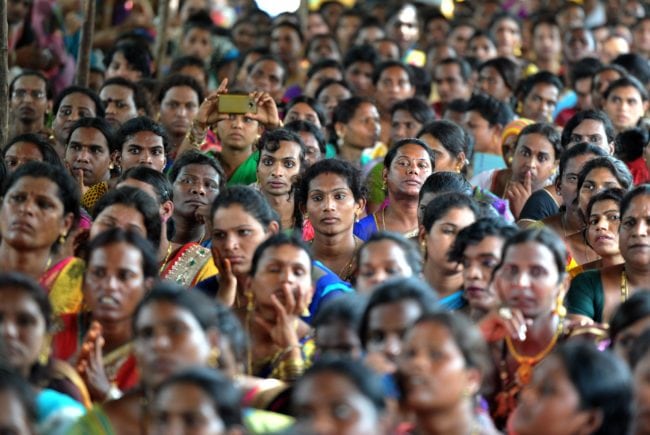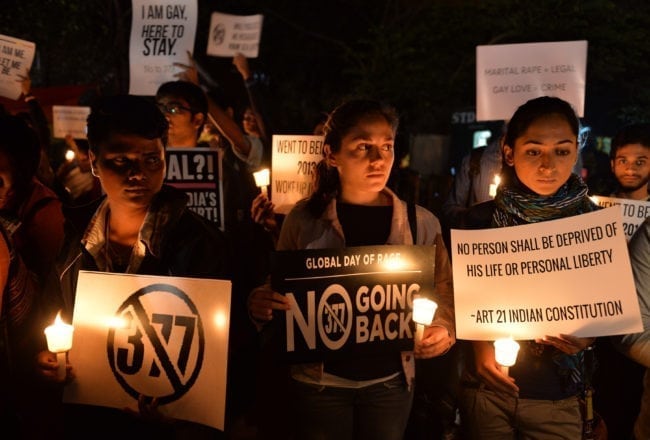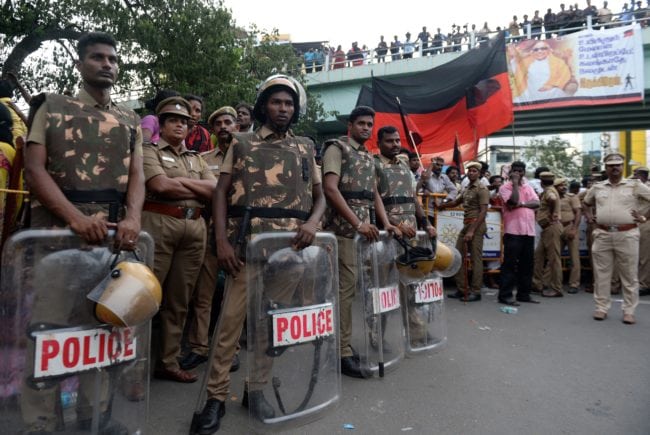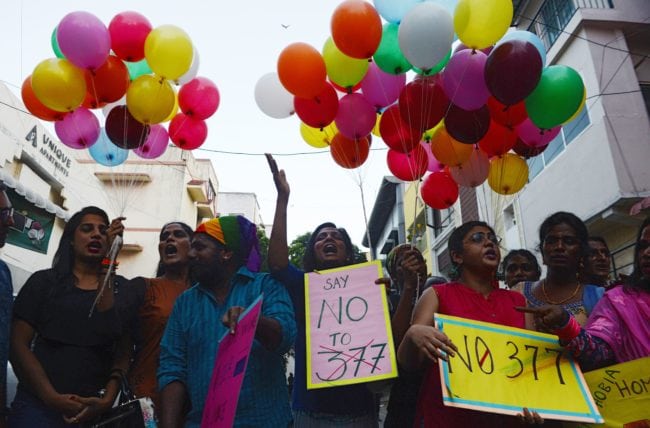Man set gay lover on fire and chopped him into the pieces after sex

The murderer invited his victim to his home before attacking him (Pexels)
A man in India has confessed to chopping his gay lover into pieces after they had sex.
The 29-year-old murderer, who lives in Tamil Nadu in the south of the country, invited a 68-year-old French tourist to his home in the village of Avikottai, where the pair had sex before the victim was killed.
The gruesome murder is horribly reminiscent of another killing on the west coast of India in January, when 21-year-old Amaan Gopal Kavitiya confessed to fatally stabbing his lover Baptisto D’Costa during sex before robbing him.

An LGBT+ protest in Hyderabad (NOAH SEELAM/AFP/Getty)
In this case, senior police officer Senthil Kumar told AFP that the killer lashed out during an argument, then tried to hide the body in sandbags.
According to The Hindu, the murderer was called Thirumurugan and the victim was named Pierre Bernard Robert Rene.
“The student got frustrated and hit him on the head with a wooden stick and he (the tourist) collapsed,” said Kumar.

Indian activists demonstrate against the Supreme Court’s reinstatement of Section 377 (Manjunath Kiran/AFP/Getty)
The murderer, fearing that his unconscious lover had died from the blow, placed Rene in a washing area in his home before dousing him in petrol and setting him on fire.
He then chopped up the corpse, hiding the parts in three sandbags and dumping them about 12km away in the nearby village of Moothakurichi.
Locals informed the police, who found Rene’s suitcase before questioning Thirumurugan.
He reportedly told officials the entire sequence of events, after which point they found the body and informed the French embassy in New Delhi.

Police found the body in a nearby village (ARUN SANKAR/AFP/Getty)
A video in May revealed the horrible abuse which queer people face in India.
One message read: “All you gay people are paedophiles.”
Another said: “Saw that you were at the Pride parade, you need to stay away from our kids.”
A third read: “This is not in our culture, leave India and take your gay bulls**t with you.”
In July, India’s Supreme Court signalled that it could strike down the country’s sodomy law.
Colonial-era penal code Section 377, which criminalises sex “against the order of nature,” has been widely used to clamp down on the LGBT community in India.

A protest against Section 377 of Indian Penal Code (ARUN SANKAR/AFP/Getty)
LGBT campaigners have been calling for the repeal of the law since it was brought back into effect by a court ruling in 2013.
Among many others, the court has heard from Suresh Kumar Koushal, a campaigner in favour of keeping the anti-LGBT legislation, who claimed that the law was needed to protect national security.
He said that if the code was not in effect, Indian soldiers would have sex with each other on the job, telling the five judges: “Fear of Section 337 restrains them from performing same-sex intercourse.
“If the provision is decriminalised it will not only have an adverse effect on Indian armed forces, but could endanger national security.”

